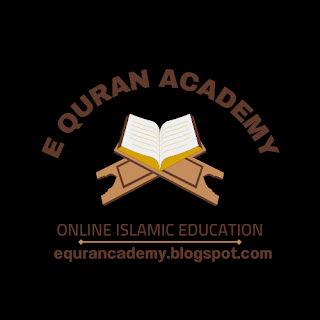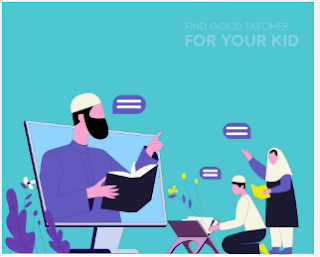The Sacrifices of Prophet Muhammad (SAW)Prophet Muhammad (SAW), the final messengerof Allah (SWT), is a paragon of sacrifice and devotion. His life was a series of selfless acts, undertaken to deliver the message of Islam and ensure its establishment in a society steeped in ignorance and injustice.
Early Sacrifices
From the onset of his prophethood, Muhammad (SAW) faced immense persecution. He sacrificed his social standing, wealth, and safety for the sake of conveying the divine revelation.
Emigration to Medina
The Hijrah, or emigration to Medina, marked a significant sacrifice. Leaving behind his beloved homeland, Mecca, the Prophet (SAW) and his followers sought refuge in Medina, where they could practice their faith freely.
Battles and Losses
The Prophet (SAW) participated in numerous battles, not for conquest but to protect the nascent Muslim community from annihilation. The battles of Badr, Uhud, and the Trench were marked by personal losses, including the martyrdom of his close companions and family members
. Personal Deprivations
Throughout his life, Muhammad (SAW) led by example, living a life of simplicity and frugality. He could have lived in luxury, but he chose a life of poverty, often tying stones to his stomach to alleviate hunger.
Legacy of Sacrifice
The sacrifices of Prophet Muhammad (SAW) laid the foundation for a religion that cherishes sacrifice for the sake of righteousness and the betterment of humanity.
In conclusion, the sacrifices of Prophet Muhammad (SAW) for Islam are unparalleled. They reflect his profound love for Allah (SWT) and his Ummah.
Revolution of Islam
Great aims, to be achieved, call for great sacrifices, and success in making a reality out of them comes at high cost. The greater the aim, the higher is the price one has to pay to realize it. Man's struggle to free himself from the chains of slavery and tyranny is thousands of years old, and it has taken countless lives. The struggle goes on today as it did in the past, and its story is endless because the struggle itself is endless.
Three of the most important landmarks in man's struggle for freedom are the French Revolution of 1789, the Russian Revolution of 1917, and the Chinese Revolution of 1949. They are also three of the most momentous events in world history.
Tides of blood rose in the wake of these revolutions, and as they receded, they carried away the old systems and symbols of oppression and exploitation with them. These revolutions generated new forces which are, even today, churning the whole world. They were the price man had to pay to buy his political and economic freedom.
(The Russian Revolution and the Soviet Empire collapsed from within, after 73years – in 1990. They did not prove to be viable.)
Many centuries earlier, i.e., in the seventh century, another revolution had changed the course of history. It was one of the greatest revolutions of all time but the remarkable thing about it was that it was peaceful. It did not whip up any tides of blood, and in fact, ought to be called a “bloodless” revolution. It was a message of peace. Peace was its insignia, and peace or Islam was its name.
Though Islam upheld peace in the world, it did not become viable without a struggle. It was, in fact, locked up, for 23 years, in a sanguinary struggle for survival, and just like the other great movements of emancipation, it also called for sacrifice. It is remarkable that Muhammad – the Messenger of God and the Prophet of Islam – did not imitate other leaders who push their followers into the flames of war in the name of “sacrifice” for an ideal. He himself was the first one to offer sacrifices for Islam.
Webster's definition of a sacrifice is to suffer loss for an ideal. Parting with one's most highly treasured possessions for the sake of an ideal, constitutes sacrifice. Most of the apostles and prophets lived lives of sacrifice.
Abraham offered his son, Ismael, as a sacrifice; and John the Baptist, offered his own life as a sacrifice. Ismael might have been killed but was replaced just in time by an ibex. John the Baptist, however, was executed, and his head was presented to a wanton to soothe her vanity. He is one of the greatest martyrs of all time.
These are two out of many examples of sacrifice that called for great courage and great faith. But both from the qualitative and quantitative points of view, the sacrifices which Muhammad offered for Islam, remain unparalleled in history.
A distinction must be made here between material sacrifices and the sacrifices of life. Muhammad made both. He sacrificed all his personal comforts, and all his material possessions for the sake of Islam. This, of course, everyone knows. What is perhaps not so well-known, is the fact that some of his nearest and dearest kinsfolk were killed in the defense of Islam. The relatives of Muhammad who made their lives an oblation for Islam, are as follows:
1.Al-Harith ibn Abi Hala, adopted son, and nephew of Khadija. He was killed in Makkah.
2.Obaida ibn al-Harith ibn Abdul-Muttalib, cousin. He was killed in the battle of Badr.
3.Hamza ibn Abdul-Muttalib, uncle. He was killed in the battle of Uhud.
4.Mas'ab ibn Umayr, uncle. He was killed in the battle of Uhud.
5.Abdullah ibn Jahash, cousin. He was killed in Uhud.
6. Zayd ibn Haritha, adopted son and friend. He was killed in the battle of Mootah.
7.Jaafer Tayyar ibn Abi Talib, cousin. He was killed in the battle of Mootah.
8.Aymen ibn Ubayd, foster-brother. He was killed in the battle of Hunayn.
This is a roster of some of the most distinguished names in all Islam, and it includes two uncles, three cousins, two adopted sons, and one foster-brother of Muhammad. It was through such sacrifices that he made Islam invulnerable and indestructible.
Muhammad never made any attempt to be protective to his own loved ones. It were, in fact, his loved ones who were the foremost in taking up the challenge of an enemy. There was no one he loved more than Ali, and yet, the position of the greatest danger in every confrontation with the pagans – in Makkah or in Medina – was invariably reserved for him.
The greatest sacrifices for Islam were all made by Muhammad and Ali.
On the other hand, Abu Bakr and Umar did not make any sacrifice. As for sacrifice for Islam is concerned, they have nothing to show. Whenever a challenge came from the pagans, as it did in the battles of Badr, Uhud and Khandaq, they (Abu Bakr and Umar), did not accept it; and no member of their families was killed in the defense of Islam at any time. The only relative that Umar ever lost in the struggle of Islam and paganism, was his maternal uncle, Abu Jahl, who was killed in the battle of Badr.
The crown of martyrdom is the greatest honor and the greatest glory that Islam can bestow upon a Muslim in this world. The loved ones of Muhammad and Ali won eight of them in the lifetime of the former, and they were destined to win many more after his death. May God bless them all.



























